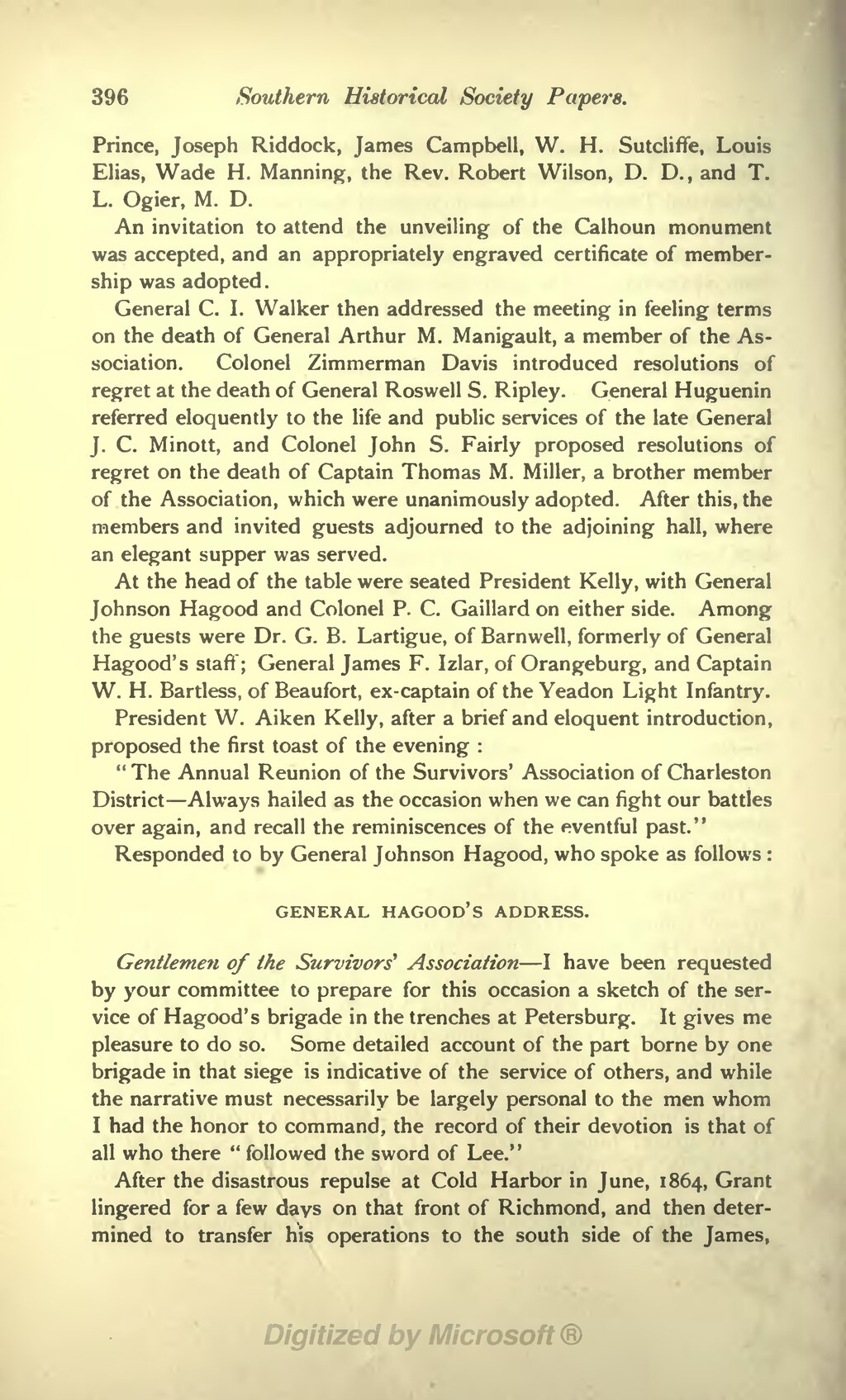396 Southern Historical Society Papers.
Prince, Joseph Riddock, James Campbell, W. H. Sutcliffe, Louis Elias, Wade H. Manning, the Rev. Robert Wilson, D. D. , and T. L. Ogier, M. D.
An invitation to attend the unveiling of the Calhoun monument was accepted, and an appropriately engraved certificate of member- ship was adopted.
General C. I. Walker then addressed the meeting in feeling terms on the death of General Arthur M. Manigault, a member of the As- sociation. Colonel Zimmerman Davis introduced resolutions of regret at the death of General Roswell S. Ripley. General Huguenin referred eloquently to the life and public services of the late General J. C. Minott, and Colonel John S. Fairly proposed resolutions of regret on the death of Captain Thomas M. Miller, a brother member of the Association, which were unanimously adopted. After this, the members and invited guests adjourned to the adjoining hall, where an elegant supper was served.
At the head of the table were seated President Kelly, with General Johnson Hagood and Colonel P. C. Gaillard on either side. Among the guests were Dr. G. B. Lartigue, of Barnwell, formerly of General Hagood's staff; General James F. Izlar, of Orangeburg, and Captain W. H. Bartless, of Beaufort, ex-captain of the Yeadon Light Infantry.
President W. Aiken Kelly, after a brief and eloquent introduction, proposed the first toast of the evening :
" The Annual Reunion of the Survivors' Association of Charleston District Always hailed as the occasion when we can fight our battles over again, and recall the reminiscences of the eventful past."
Responded to by General Johnson Hagood, who spoke as follows :
GENERAL HAGOOD' S ADDRESS.
Gentlemen of ike Survivors' Association I have been requested by your committee to prepare for this occasion a sketch of the ser- vice of Hagood's brigade in the trenches at Petersburg. It gives me pleasure to do so. Some detailed account of the part borne by one brigade in that siege is indicative of the service of others, and while the narrative must necessarily be largely personal to the men whom I had the honor to command, the record of their devotion is that of all who there " followed the sword of Lee."
After the disastrous repulse at Cold Harbor in June, 1864, Grant lingered for a few days on that front of Richmond, and then deter- mined to transfer his operations to the south side of the James,
